As many British readers will know, the nation’s university system is a mess both academically and politically. There are universities that are good or outstanding in the way they teach, research and administer their institutions, but there are others where the failings to far beyond academic ones. In some universities it appears that student Islamic Societies have been breeding grounds for ISIS supporters. One of those universities that have had a serious terrorism problem among their students is the University of Westminster. The BBC has recently published an article detailing their investigation into the problems surrounding terrorist recruitment at the University of Westminster. The BBC found that eight students or former students of this university ended up fighting in Syria, one of those students was the notorious Mohammed Emwazi, the jihadist murderer who became known as ‘Jihadi John’.
The situation that the BBC say was going on at the University of Westminster looks dire. It appears to be the case that at least some of the Islamic groupings and some individual students at the university were heavily involved with Islamic extremism. The university seems to have acted like a veritable production line for Islamic extremists and terrorists and has in my view failed dismally to root out or exclude Islamic extremism from its organisation.
I have to say that the BBC’s article was uncharacteristically well done. There was of course a little of the ‘poor boys led astray’ tone to parts of the article, as we can expect from the BBC, but on the whole this was a good expose of a university that has tolerated the intolerable in the form of the sort of extremists that their student body has produced. There are many things that the BBC can and should be criticised for, but this article is not one of them. I will excerpt some parts of the article below but I would strongly advise that people read the full article because what it shows is how the university along with the government and the courts have failed to stop violent Islamic extremism from taking root in one of Britain’s universities.
The BBC, who base a large part of their article on statements made by a captured Islamic state fighter from the UK, said:
An Islamic State fighter held in Syria has told the BBC he was one of at least seven students and ex-students from University of Westminster to join IS.
Zakariyya Elogbani abandoned a degree in business management which he was taking at the university in 2014.
Another student had been studying while on a terror protection order which was made less restrictive by a judge, a BBC investigation has found.
University of Westminster says it takes its safeguarding duty “very seriously”.
This is not the first time that students at the university have been linked to violent jihadism – the notorious IS killer Mohammed Emwazi, known as Jihadi John, studied there until 2009.
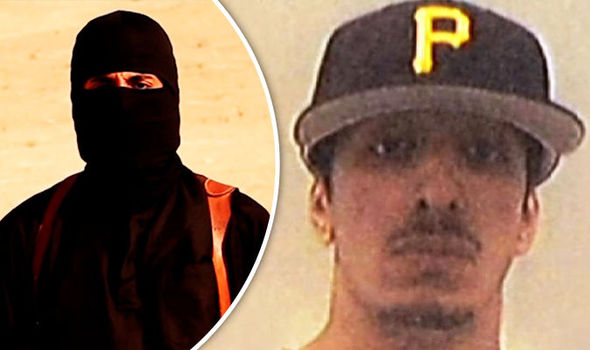
Islamic killer Mohammed Emwazi who became known as ‘Jihadi John’. Thankfully this bastard was killed in a drone strike.
Having read the BBC article I’m not sure how effective the university has been in combatting Islamic extremism. This denial by the university that they take ‘safeguarding’ seriously rings a little hollow to me as this university has produced an awful lot of extremists. There does seem to be something rotten in the university’s Islamic societies and in the way that the university has dealt with extremism problems.
The BBC added:
Elogbani, who grew up in east London, was captured by Kurdish forces in Syria nine months ago.
Speaking to the BBC’s Middle East Correspondent Quentin Sommerville, Elogbani said: “Obviously we came here intending to fight. That’s the honest truth. But I don’t think it was a love for blood.”
He said there was a group at University of Westminster who had already left for Syria before he even began his studies.
“They kind of opened the way,” he added.
That may have been a reference to Mohammed Emwazi, who studied information systems at the university and left for Syria in 2013. He became infamous after appearing in videos in which he killed Western hostages. Emwazi died in a missile strike in November 2015.
Elogbani denied knowing him but admitted seeing another of the British kidnap gang, known as The Beatles, in Syria.
The BBC then went out to give potted histories of those who had attended the University of Westminster and who had turned quite swiftly it seems to terrorism. Thankfully for the rest of us, most of those ex University of Westminster terrorist alumni seem to have been killed in the fighting that has engulfed Syria and Iraq. I have little doubt that many of those who have been named as jihadist fighters would, if the had lived and returned to the United Kingdom, have posed a serious threat to the safety of Britons. It is unlikely in my view that those would fought for Islam on a foreign battlefield would have not wanted to bring that battlefield to the UK. Others who have taken the well trodden route from the University of Westminster to violent jihad are currently in detention in the conflict region and it is to be hoped that they are never returned to the UK.
The story then continues with the Elogbani claiming to the BBC that one of the terrorists killed in the conflict was another former student at the University of Westminster, Qasim Abukar. This particular violent savage Qasim Abukar has been in the news before when he claimed that he was ‘mistreated’ by British agents when he was caught fighting in Somalia for a militant Islamic group. Abukar kicked up a fuss about this and was returned to the United Kingdom. He was described by the BBC as a ‘hardened jihadist’ and that is not a description with which I will disagree.
It was the details that the BBC gave about Qasim Abukar that made my blood boil and which highlighted a failure of the legal process to curtail the activities of jihadists. Abukar was firmly and squarely on the radar of the Security Services MI5. His attachment to and involvement in extremism was in no way minor or peripheral and it would be fair for me to describe him as a rotten, dangerous and unwanted Islamic savage.
The BBC continued:
Abukar became a student at University of Westminster in September 2012.
He played a key role in radicalising Elogbani, according to friends who have spoken to the BBC but do not wish to be identified.
Abukar had been known to security services for years.
He absconded from Britain to Somalia during a trial in 2009, in which he was accused of attempting to travel to Afghanistan for terrorism. He was acquitted in his absence.
A separate High Court appeal heard that in Somalia, Abukar was “involved in fighting” alongside the militant group al-Shabaab and tried to recruit fighters in the UK for overseas operations. The court was told he was “potentially involved in attack planning” against Western interests.
In 2011, after a period in custody in Somalia, he returned to the UK claiming he had been mistreated with the knowledge of the British state.
He was placed on a control order and a Terrorism Prevention and Investigation Measure, or TPIM, to restrict his movements.
Following the High Court case and his return to Britain he enrolled in the University of Westminster in 2012 where he went on to radicalise others the BBC claim. Abukar was subjected to quite strict terrorism prevention conditions because although unconvicted of any terror offence, there was enough intelligence to prove, presumably on a balance of probabilities basis, that Abukar was an Islamic extremist. Unfortunately, Abukar managed to successfully challenge the government over the TPIM and in 2013 a court watered down the conditions of the order and allowed greater freedom of movement and far more freedom to interact with other students. It should be noted at this point that the court was lenient towards Abukar despite objections to this course of action from the Security Service.
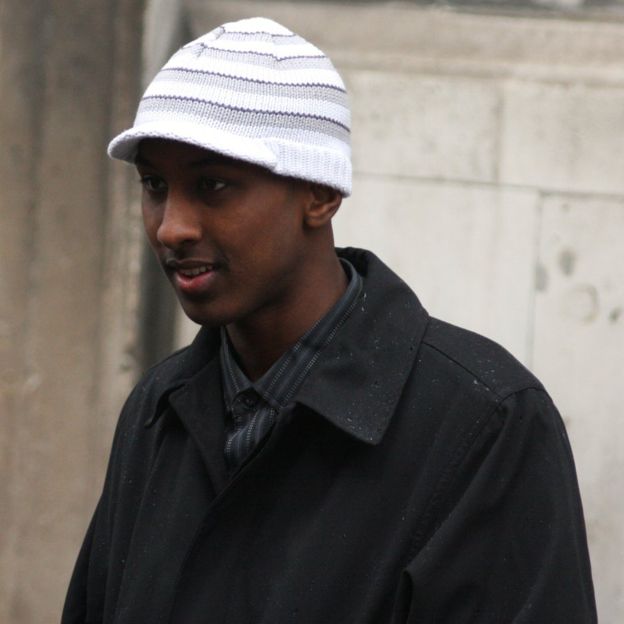
Qasim Abukar the hardened jihadi who was allowed to enroll on a college course and radicalise other students (pic from BBC)
It is my opinion that reducing the restrictions imposed on Abukar has had far reaching implications. It allowed Abukar to radicalise other students and by taking him off the electronic tag that he was ordered to wear, the courts gave this dangerous savage much more free movement than he deserved. I wonder how many innocent civilians have died in Iraq and Syria because British judges erred on the side of caution when it came to this dangerous savage who proselytised jihad to other Muslim students? This is the sort of Islamic savage who would and should be a prime candidate for some form of internment. There may not be enough evidence that can be admitted to open court, for obvious security reasons. This is because some of the evidence against Abukar may have come from human intelligence sources or signals intelligence sources that the Security Services would quite rightly not want to be revealed in open court. Internment with legal safeguards against abuse may be the most effective way to deal with those who cannot be deported but who cannot be prosecuted without compromising national security. Sadly, in this case the violent jihadi was allowed to walk free and was therefore able to do an awful lot of damage.
It should also be noted that Abukar was not the only terror supporter in his family. His brother is currently serving a prison sentence for defrauding British pensioners of their savings in a multimillion pound fraud. The Metropolitan Police suspect that much of the money that was defrauded was channelled towards Islamic terrorists. As in some other similar cases of Islamic terrorism, this savagery does seem to run in the family with more than one family member committed to the cause of destroying Britain and the West.
While reading the BBC article I started to become increasingly gobsmacked at the abject failure of the University of Westminster to deal with what must have been an obvious problem of Islamic extremism. Did nobody report their concerns about student activity to senior management? Did the university not intervene when it may have become plain that the culture of the university Islamic societies was not exactly moderate? It seems to be the case that nothing practical was done to curb the activities of Islamic extremists at all apart from the university commissioning a report in 2015 into the subject of Islamic extremism at their institution, information that they should have been in possession with and should have acted on many years before.
The report, whose authors include Fiyaz Mughal the founder of the Tell Mama organisation, said that the university had failed to ‘confront and counter’ extremist views. This is one of those rare occasions when I find myself in agreement with Fiyaz Mughal. Despite my dislike of his Tell Mama organisation or their activities, Fiyaz Mughal is dead right about the failures of management at the University of Westminster.
Fiyaz Mughal said:
“The university failed to understand its duty of care around confronting and countering extremist views.
“But more importantly it didn’t even understand its duty of care and didn’t understand the concept of things like Islamism and extremism.”
The BBC claimed that Fiyaz Mughal was concerned about the activities of the university Islamic Society of which Elogbani was an active member. Fiyaz Mughal according to the BBC said that the Islamic society was “allowed to run its own fiefdom”. This dominance by extremists led the BBC said to women and LGBT students at the university being treated with hostility.
This revelation by Fiyaz Mughal of the extremist culture of the University of Westminster Islamic Society and the hostility that the members and supporters of this society showed to other students is worrying. It certainly suggests that there may have been behaviour by the Islamic society that may have generated complaints by students about the Islamic society and its members. The question I have is what happened to these complaints? Were they acted upon and resolved or worse, were these complaints ignored and pushed under the carpet by university management?
I get the impression that the university management has allowed the Islamic Society at the organisation to get away with far more than they’d let other groups get away with. Why they did this I do not know. It could be general political correctness, naivety, a desire not to rock the boat or possibly the Islamic Society had sympathisers on the university management? We also should not discount the possibility that the management may have not wanted to provoke violence from the members and supporters of the Islamic Society, violence that might have occurred if the university penalised the Islamic society for its extremist direction?
For whatever reason the university allowed it to happen, their organisation has become a bit of a terrorist factory and that is something that should not have happened. I fear that the university may have given the Islamic Society there much more leeway than they would have given organisations serving other religious groups. I can well imagine that if members of other faiths had been harassing students or creating an oppressive atmosphere and harbouring extremists, then this story may have been different. In the case of other religious groups misbehaving then something may have been done as it should have been done in the case of the University of Westminster Islamic Society.
The University of Westminster has completely and utterly failed to keep their students safe from dangerous extremists. They’ve failed to prevent Islamic radicalisation and they’ve failed to stop extremist Muslims from imposing their oppressive will on other students. This case represents a catalogue of failures sometimes by other agencies such as the courts, but mainly by the university. My worry about this case is that what happened at the University of Westminster may not be a ‘one off’ incident. There could be other universities that have the same problem of their Islamic Society’s being hotbeds of extremism and jihad but which have not yet come to light, some of these university Islamic Society’s may still be extreme and may continuing to churn out violent Islamic extremists.

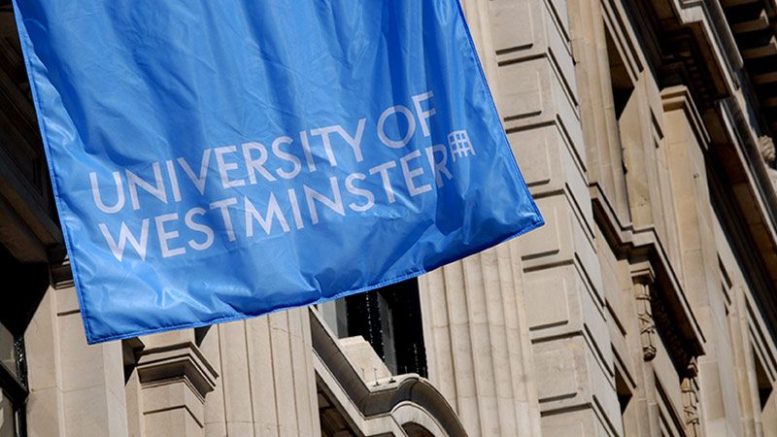
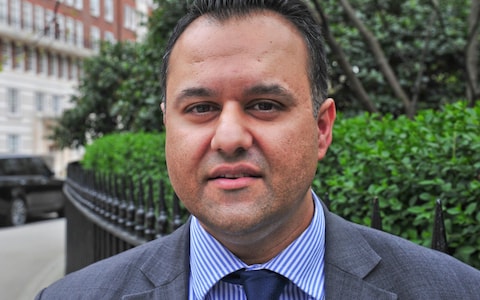
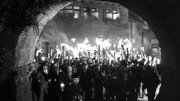


Raheem Kassam went to the university of Westminster and IIRC left Islam because of the extremism of the Islamic society there.
Yes I recall Mr K giving an interview once which covered this issue. I think, IIRC, that encountering these Islamic loons was one of the things that pushed him away from Islam.